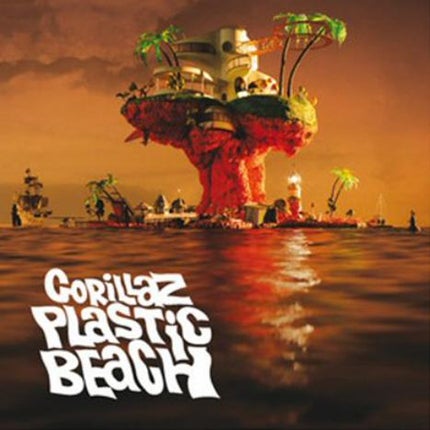Your support helps us to tell the story
From reproductive rights to climate change to Big Tech, The Independent is on the ground when the story is developing. Whether it's investigating the financials of Elon Musk's pro-Trump PAC or producing our latest documentary, 'The A Word', which shines a light on the American women fighting for reproductive rights, we know how important it is to parse out the facts from the messaging.
At such a critical moment in US history, we need reporters on the ground. Your donation allows us to keep sending journalists to speak to both sides of the story.
The Independent is trusted by Americans across the entire political spectrum. And unlike many other quality news outlets, we choose not to lock Americans out of our reporting and analysis with paywalls. We believe quality journalism should be available to everyone, paid for by those who can afford it.
Your support makes all the difference.When the Gorillaz project was first unveiled in 2001, it was the pop equivalent of a Hoxton fin haircut: an over-stylised, self-consciously zeitgeisty irritant.
Their claim to be the first-ever virtual band (as if The Archies or Josie and the Pussycats never existed) was indulged all too eagerly by the media, who played along with Damon Albarn, Jamie Hewlett and Danger Mouse's stunt with depressing sycophancy, while the actual music was something of a redundant sideshow.
In 2010, they're still at it with the tiresome "Gorillaz are a separate entity guv, honest" business: in next week's NME, Damon Albarn "interviews" Murdoc, for pity's sake. With Plastic Beach, though, they've finally delivered something that's more than just a wacky virtual wheeze.
The collaborative nature of the project means it inevitably misfires occasionally. "Sweepstakes", featuring Mos Def, is a bit of a gnarly mess. "Some Kind of Nature", with Lou Reed, sounds like star-fucking wish-fulfilment, while on "White Flag", Kano and Bashy appear to be rapping over bad retro video game bleeps and an infant school recorder lesson. Albarn's own contributions are hit and miss: the dub-ska of "Rhinestone Eyes" could be a Good, The Bad And The Queen reject.
But the good stuff is, well, really good. "Welcome to the World of the Plastic Beach", featuring Snoop Dogg, could be a prime-time Dre production. "Superfast Jellyfish" unites Gruff Rhys and De La Soul to create a new hybrid genre, Daffodil Age. The title track, starring The Clash's Mick Jones and Paul Simonon, moves from a Glasvegas-meets-Morricone shimmer into squeak-funk. "Glitter Freeze" has Mark E Smith snarling over Glitter Band drums and Rah Band synths; a well-mined seam in recent years, but they make it sound fresh. "Electric Shock" emulates horror movie incidental music to nightmarish effect.
Most astonishing is "Stylo", which superimposes soul legend Bobby Womack over sumptuous future-pop: think "Across 110th Street" meets "Trans Europe Express". Plastic Beach is a record that stands up on its own merits, regardless of graphic gimmicks. Throw the cartoons on the landfill and just listen.

Join our commenting forum
Join thought-provoking conversations, follow other Independent readers and see their replies
Comments